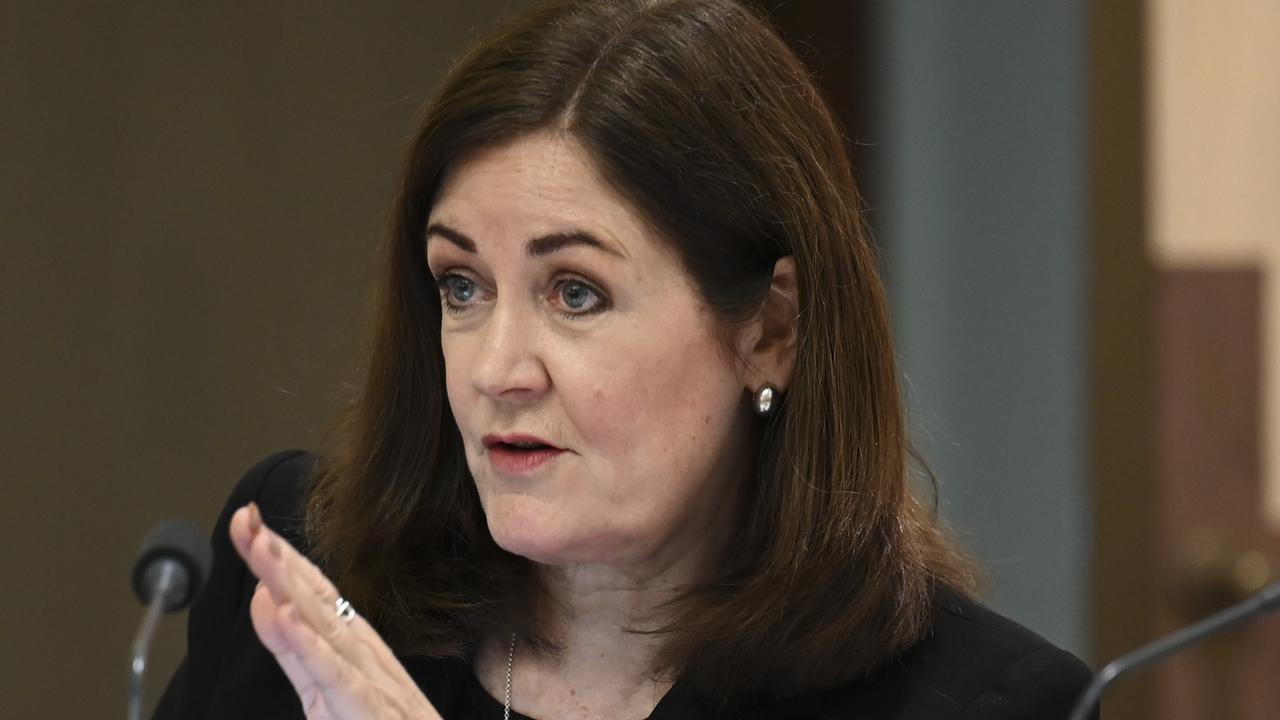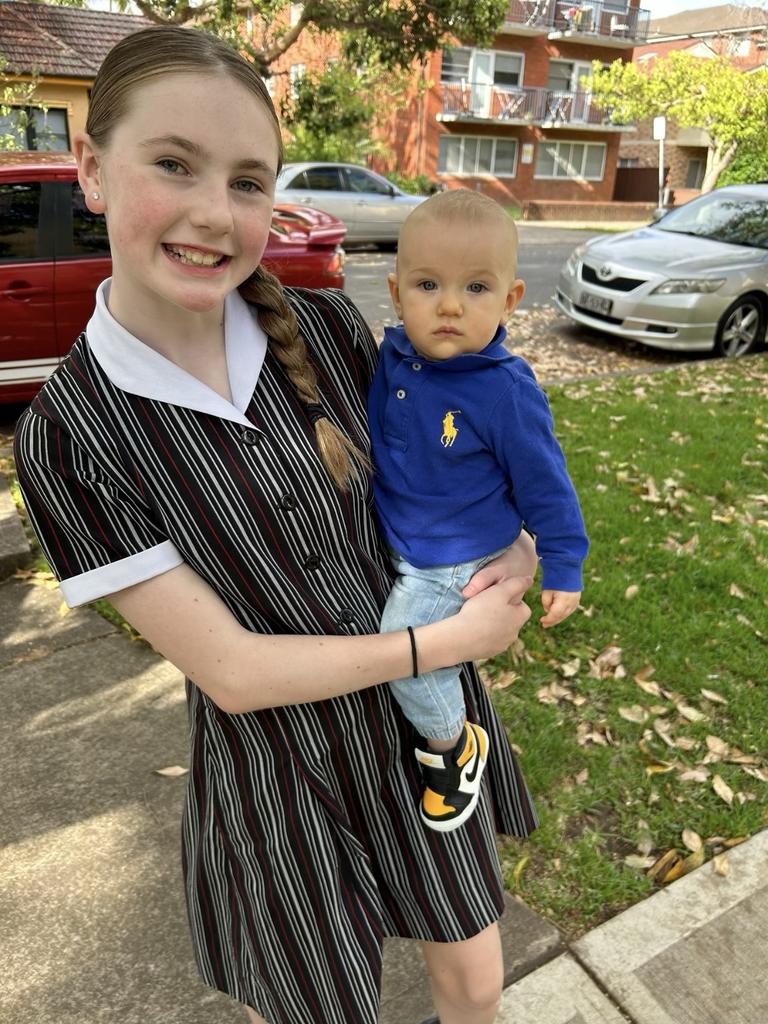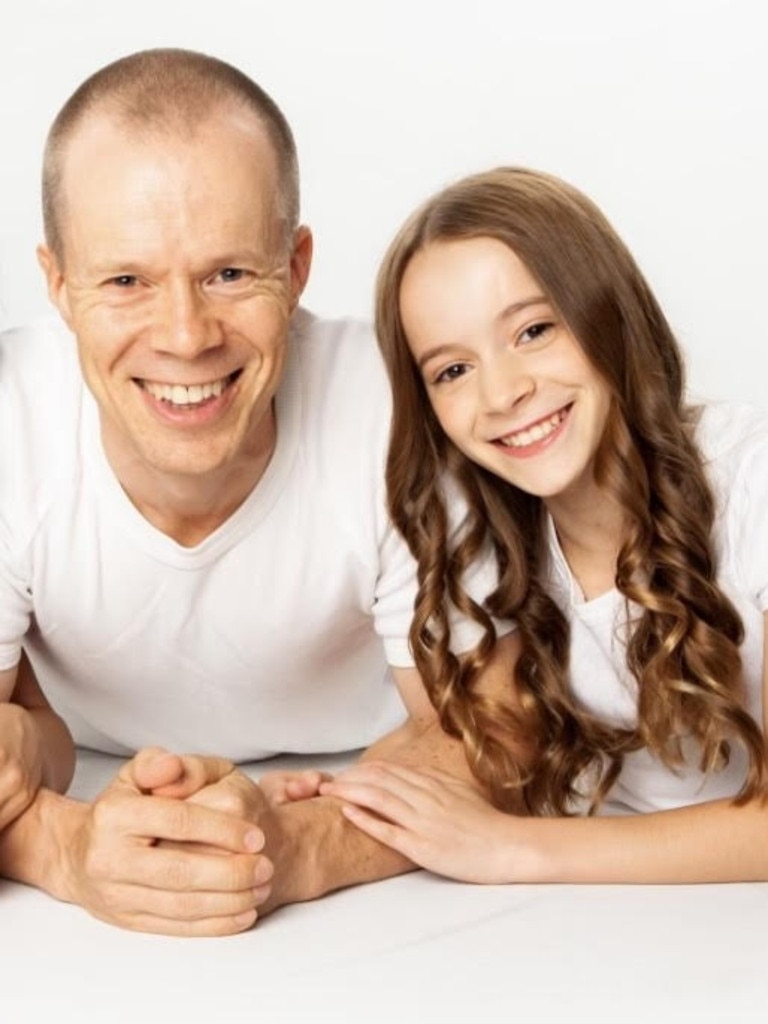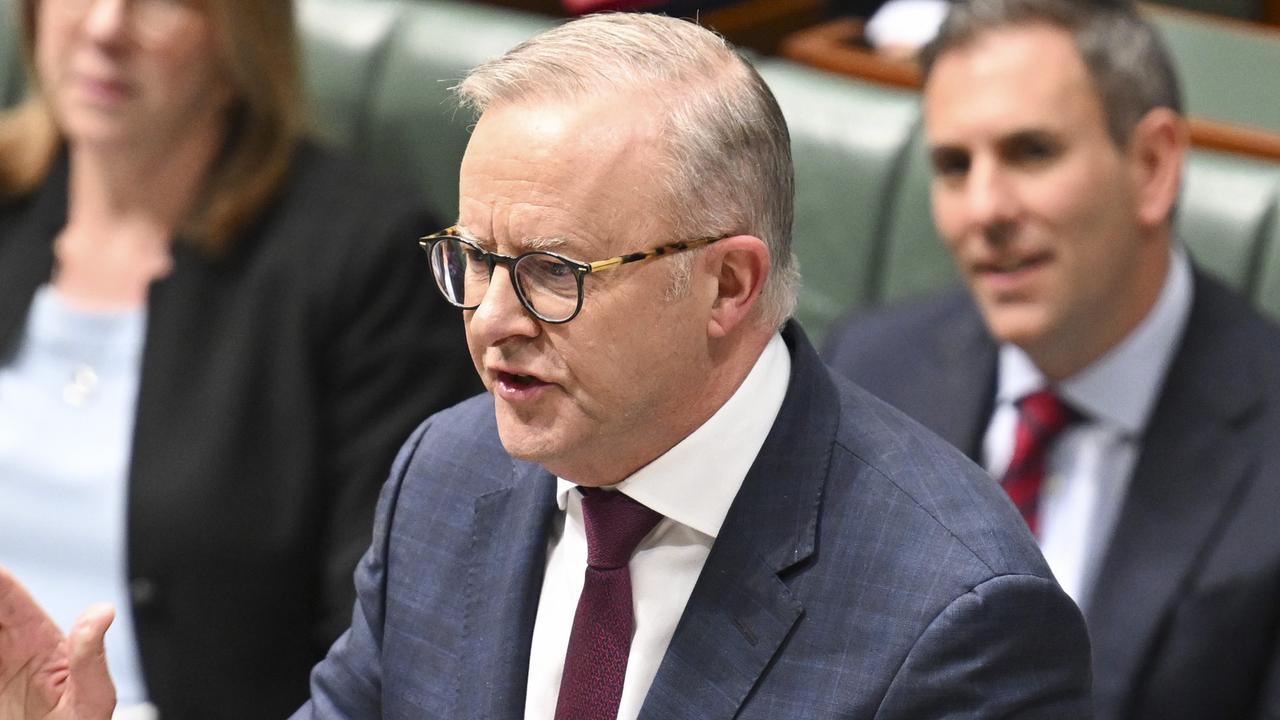Social media industry group Digi lashed over ‘outrageous’ response to age ban
The industry group was criticised for ignoring the wishes of greiving parents who had lost their children to suicide as a result of social media bullying.
Tech giants have been accused of taking the moral high ground after arguing a social media age ban for teenagers under 16 years of age would do more harm than good, while also ignoring the wishes of grieving parents who have advocated for a ban following the suicide of their daughters.
Fronting an inquiry into the proposed legislation, which will likely be passed this week, Liberal senator Sarah Henderson accused Digi managing director Sunita Bose of making an “outrageous statement” after she said she opposed the law due to concerns it would “compromise the safety of young people”.
“It’s my job at Digi to work with the industry and with the government and with the community to propose solutions to really challenging online issues that we face,” said Ms Bose, who head the industry group which represents social media giants like Meta, TikTok, Snapchat and Twitter.

Senator Henderson, who accused Ms Bose of “trying to protect the big tech giants” also asked Ms Bose to “please explain” her position to the parents of Charlotte O’Brien, 12, and Olivia Evans, 15, whose parents have lobbied for a social media age limit.
Charlotte’s parents Kelly and Mat said their daughter’s mental health severely deteriorated after she was relentlessly bullied on social media before her death in September this year.
Olivia died in April 2023, following a two-year battle with anorexia, with her father Rob Evans stating she was able to access toxic content on Instagram which fuelled her eating disorder.
“Grieving families … have been campaigning for social media age limits. Can you please explain to those parents and to other parents who’ve lost their children why you are right and they are wrong?” asked Senator Henderson.


While Ms Bose acknowledged the “tragic events”, she said a wide-ranging ban could risk children going to “darker, less safe, less regulated online spaces”.
“These are absolutely tragic events, and as a parent of two myself, I cannot imagine anything worse,” she said.
“We must remain focused on how we protect young people online without cutting them off from the connection and the mental health support that previous witnesses have discussed today, we do this by teaching young people how to safely navigate online spaces, how to seek help.”
Ms Bose also would not directly say whether she agreed with a controversial statement from Meta’s global head of safety Antigone Davis, who said she didn’t think social media harms children.
“There are certainly … examples … of young people where it has done harm, and then there are other examples of young people where they’ve seen benefit,” she said.
“This underscores the importance of taking a nuanced look at these issues and a balanced policy approach.”
Senator Jacqui Lambie also unleashed at the industry group and asked why platforms have refused to withdraw algorithms which were harming children.
“Just put in the algorithms to stop this. If you really give a stuff about our kids, why don’t you just put in the algorithms that’ll fix this?” she said.
However Ms Bose defended the algorithms as being “critical to efforts on online safety,” stating “they’re actually what weeds out harmful content,” leading to further interjection from senators.
Digi’s policy regulatory affairs and research director Jennifer Duxbury added that platforms were already under safety obligations to “make sure that the best interests of the children are taken into account,” something Senator Lambie refuted.
PM calls for ‘unanimous support’ of Bill
Anthony Albanese has also issued a call for the “unanimous support” of the social media age ban, which will likely pass parliament and has the bipartisan support of both Labor and the Coalition.
In a speech to the House, Mr Albanese said while it was correct the law “won’t fix everything and it won’t work in every situation,” he said “perfection” could not be a “barrier to action”.
“One of the great values of this law is the message that it sends the backup, it provides to parents across Australia who feel out of their depth and worried about where all this will end,” he said.
If the law passes, Australia will be the first national jurisdiction with the age ban – with Mr Albanese stating international leaders in Europe, the US and New Zealand were “applauding” and closely watching Australia’s implementation of the ban.

Social media doesn’t benefit mental health: expert
Earlier in the inquiry, clinical psychologist Danielle Einstein told the committee any benefits of social media to mental health are “far outweighed” by the disadvantages.
“I do not see any benefits for mental health from social media. I’ve looked really hard at the evidence,” she said.
Prof Einstein said the ban could change the norms in which young people automatically engage in social media over creating relationships in physical spaces.
“Parents can’t ask their children to be off social media because they then miss out on everything, but once you have a chunk who are happy to do that, they know they’ll still have friends,” she said.
She said forcing teenagers off social media will also remove the “addictive element of social media,” like notifications, which will in turn encourage young people to form real-life relationships.
Although Project Rockit chief executive officer Lucy Thomas was against the ban, and criticised it for being a “blunt instrument,” she said the legislation’s exemption framework would allow teens and children to continue to access low-risk apps.
“I think by prioritising the exemption framework as a key feature of this bill, we could look to create pathways for the reintegration of age appropriate social online experiences, as industry steps up and government builds its literacy to really meet this responsibility,” she said.




